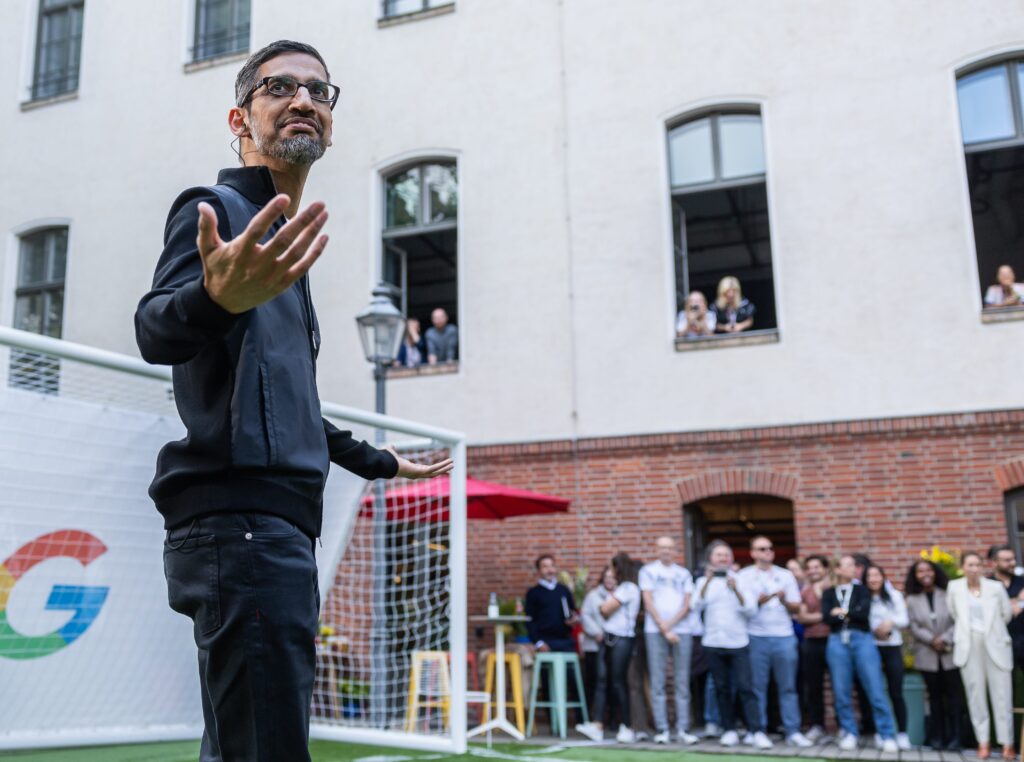- Google's CEO Sundar Pichai says the sudden public interest in AI surprised the company.
- During an event at Stanford University, Pichai said he had a "different sense of the trajectory."
- Google has been fighting rumors that it was thrown into panic mode after the launch of ChatGPT.
Google CEO Sundar Pichai has admitted that the generative AI boom caught Google by surprise.
During an event at Stanford University earlier this month, the tech boss said his company was "surprised" by the sudden public interest in AI.
Despite saying he recognized the tech's significance years ago, he admitted he had a "different sense of the trajectory in mind" when it came to society's adoption of AI.
Google has been dogged by rumors it was thrown into a panic following the launch of OpenAI's ChatGPT.
Pichai reportedly issued a "code red" over the chatbot's sudden popularity, later pouring resources into Google's AI development and bringing the company's cofounders back into the fold to help with product efforts.
Since ChatGPT launched, Google has been pushing its own AI, releasing a rival product, and combining its AI teams. Last year, the company merged its two AI research groups, Google Brain and DeepMind, into one new team, Google DeepMind.
But while old rival Microsoft benefited from its early investment into OpenAI and quick-to-market products, Google has struggled to control the narrative around AI in the same way.
The company has also suffered two embarrassing setbacks on the AI front. First when its chatbot Bard made a mistake during a demo and later when its Gemini model failed to generate historically accurate images, provoking a firestorm of backlash.
Pichai later said the company had "got it wrong" with Gemini, acknowledging that some of the model's responses had offended users and "shown bias."
However, according to Pichai, it's still early days for AI, and Google is ready for battle.
"I feel incredibly well positioned for what is coming, and we are still in the very early days," he said at the event.
Representatives for Google did not immediately respond to a request for comment, made outside normal working hours.
